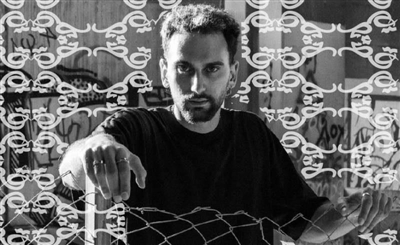Ibn El Leil: The Myth & Melancholy of Mashrou’ Leila’s Final Act
How Mashrou’ Leila’s ‘Ibn El Leil’ blended mythology, activism and sound to leave a lasting mark on Arabic music.
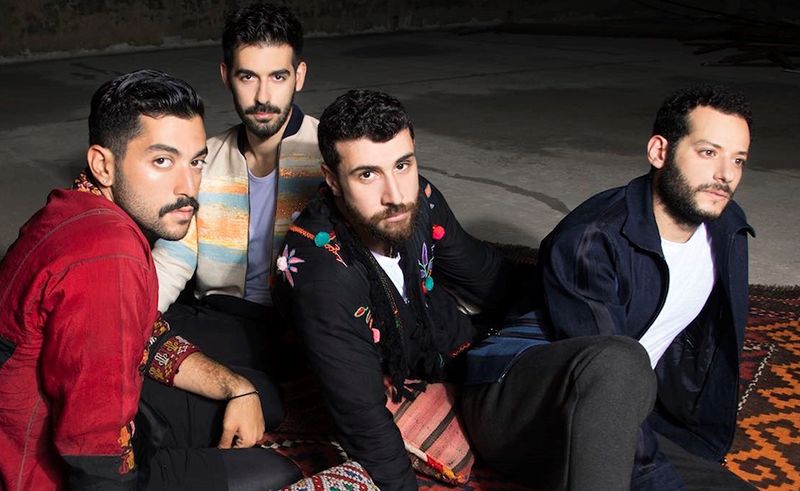
Mashrou' Leila's name is now synonymous with stirring controversy and outspoken liberalism during the most tumultuous of events. Their music proved so powerful that it propelled them beyond music, transforming them into a symbol of liberation, a voice for the Arab Spring and a relentless challenger of the status quo. Yet, amidst the whirlwind of pronouncements surrounding them - their music, as rebellious as their spirit, has at times been overshadowed by the weight of what they represented.
The iconoclastic band is now considered one of the most forward-thinking musical experiences in the history of Arabic music. A truly one-of-a-kind rock act that presented an entirely Arabic approach to rock music by adopting the genre’s elements and domesticizing them into a purely Arab context. The lead singer, Hamed Sinno, has introduced an unprecedented vocal style that was only levelled up by the band’s unconventional and hybrid arrangements, harmonious and contrasting instrumental overlaps, and his exceptionally conceptual songwriting.
Despite its relatively short lifespan, the band has amassed a catalog of five albums, all falling very close in terms of consistency and quality. While their earlier efforts leaned heavily into rock and indie, with occasional touches of blues and funk, the band started from square one with the release of their last studio album, ‘Ibn El Leil’. This album marked a complete departure from rock, venturing instead into electronic music, dance-pop and symphonic instrumentation. ‘Ibn El Leil’ was a conceptual work of remarkable complexity, showcasing exceptional songwriting and exploring entirely new musical territories for the band - territories they have navigated with unparalleled creativity.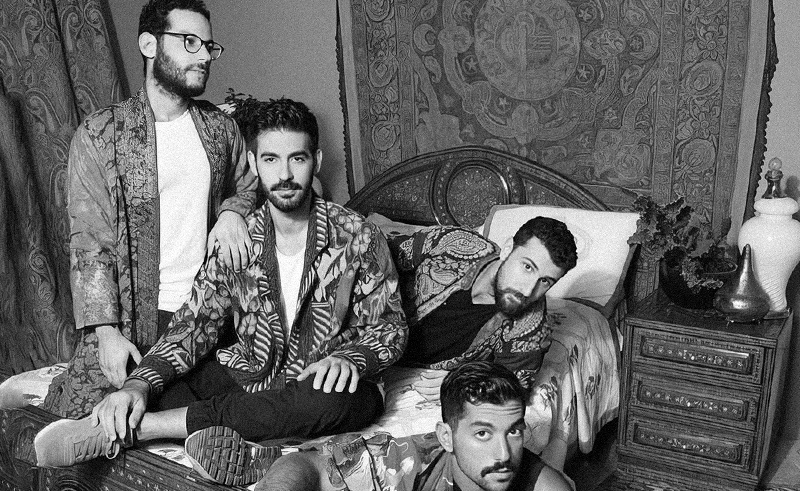 Following the departure of keyboardist Omaya Malaeb, the band began experimenting with drum machines, loops, samples and new production techniques, blending these elements with their distinct instrumental style showcased in ‘Raasük’. This experimentation resulted in a soundscape dominated by synth-based electronic dance music that was less dense in terms of sound, and more intricate on a songwriting and compositional level. It can be said that ‘Ibn El Leil’ was their most experimental work, yet also their most cohesive.
Following the departure of keyboardist Omaya Malaeb, the band began experimenting with drum machines, loops, samples and new production techniques, blending these elements with their distinct instrumental style showcased in ‘Raasük’. This experimentation resulted in a soundscape dominated by synth-based electronic dance music that was less dense in terms of sound, and more intricate on a songwriting and compositional level. It can be said that ‘Ibn El Leil’ was their most experimental work, yet also their most cohesive.
Though Hamed Sinno’s eloquent songwriting was pretty well established in previous works, ‘Ibn El Leil’ further proved his intricately poetic writing, spilling moments of pure genius and conceptual storytelling throughout the record. Listening to the album from front to back in chronological order, you begin to catch a thread of Sinno’s narrative, beginning with the opener, ‘Aeode’, where Sinno invokes Aeode, the daughter of Zeus and the muse of sound and singing in Greek mythology to inspire him and grant him words
خذ العباب عني
انا اسير مرايتي
ايودي
ايودي
عم برجع ناديلك
اعتقني شياطيني
بسقي بدمها ترابك
لعله ينمي لحني
ايودي
جازيني
سيطر علي فمي
جازي العباد
(Cast away my burdens, I'm a prisoner of my reflection, my demons set me free, with their blood I water your soil, hoping it will nurture my melody… Aeode, reward me, control my madness… Reward the people.)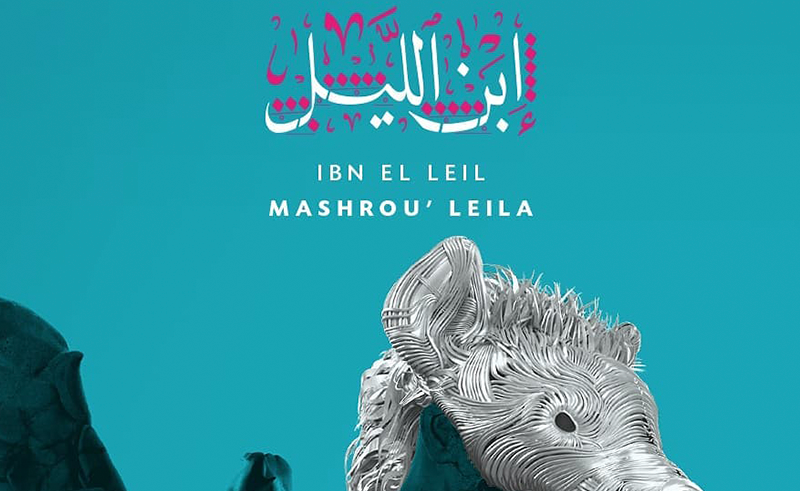 The narrative continues with ‘3 Minutes’, where Sinno reflects on his sense of purpose as an artist and the intricate dynamic between the creator and the audience. The track explores the vulnerability of laying bare one’s most intimate thoughts for public scrutiny, and the inevitable subjectivity with which audiences interpret art, each through their own lens. Sinno’s lyrics unfold with a poetic introspection, capturing the tension between expression and perception before the album’s tale begins in ‘Djin’.
The narrative continues with ‘3 Minutes’, where Sinno reflects on his sense of purpose as an artist and the intricate dynamic between the creator and the audience. The track explores the vulnerability of laying bare one’s most intimate thoughts for public scrutiny, and the inevitable subjectivity with which audiences interpret art, each through their own lens. Sinno’s lyrics unfold with a poetic introspection, capturing the tension between expression and perception before the album’s tale begins in ‘Djin’.
ليه ليهمني اني كون بدل من اني صير؟
كل الاشياء بتعيش لتنتهي بلحن جديد
الفرق بين الحرية والخضوع تخيير
أنا لي اخترت. أنا لي قبلت. أنا لي قلت
سمي الشيطان بإسمو وسمي الفنان كذاب
نصف الاشياء يلي بحسها بتجي من الخيال
وإذا بناقد نفسي كلنا منحتوي أعداء
أنا لي كبرت. أنا لي قبلت. أنا لي قلت”
(Why does it matter more to me to exist than to become?
Everything moves toward its end, creating a new melody.
The line between freedom and submission lies in choosing.
I was the one who chose. The one who accepted. The one who spoke.
Call the devil by his name, and call the artist a liar.
Half the feelings I have are born of imagination.
And if I turn my critique inward, aren’t we all harbouring our own enemies?
I was the one who grew. The one who accepted. The one who spoke.)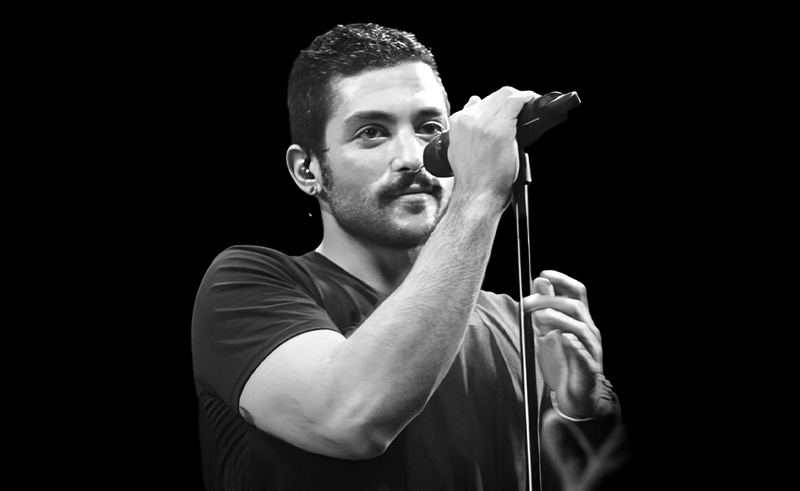 The lyrics of the album show significant maturity and draw heavily from Greco-Roman mythology in their metaphors and imagery. The album narrates the story of an individual who is celebrating but simultaneously experiencing sadness and alienation, observing Beirut nightlife through a lens of melancholy. Consequently, the album unfolds like a narrative of one night, with the songs arranged in a sequential storytelling manner.
The lyrics of the album show significant maturity and draw heavily from Greco-Roman mythology in their metaphors and imagery. The album narrates the story of an individual who is celebrating but simultaneously experiencing sadness and alienation, observing Beirut nightlife through a lens of melancholy. Consequently, the album unfolds like a narrative of one night, with the songs arranged in a sequential storytelling manner.
On ‘Ashabi’, Sinno reflects on his solitude in a Beirut nightclub. ‘Tayf’ centres around a nightclub that was shut down by the Lebanese authorities because of the identities and sexual orientations of its patrons, who were then assaulted and humiliated. In this song, Sinno addresses the issue with opening lyrics:
"غنيت مع كورس أشباح تحت رصاص مدينتى
و الدبكات ارقصتها تحت ضو اشارة السير
لانتشيت ع الكهربا من أنخاع العمود
و صبيت دموع النيون ع سواد العيون"
(I sang with a chorus of ghosts under the bullets of my city, and danced the dabke under the traffic light. I got high on the electricity from the spinal cord of the pole, and poured neon tears on the blackness of the eyes).
Ibn El Leil has come to be recognised as one of the defining indie albums of its era. Although it faced mixed reactions from fans and critics upon release, time allowed audiences to unpack its themes and ideas. The album marked a bold and radical departure from Mashrou’ Leila’s signature sound as the band deliberately sought to break new ground.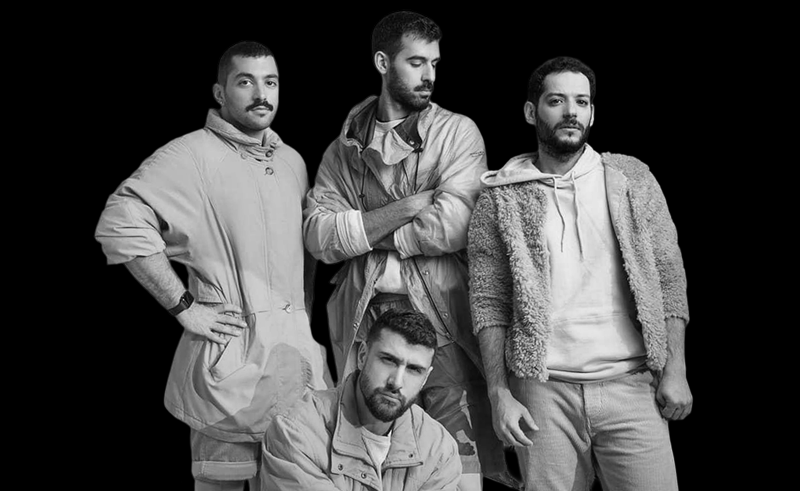 However, the album also marked the beginning of a challenging period for the band. In the years that followed, they released no new material and faced relentless hate campaigns across the region. Their political beliefs, support for freedom of speech and openness about sexuality made them the target of significant backlash. Gradually, Mashrou’ Leila faded from the regional music scene.
However, the album also marked the beginning of a challenging period for the band. In the years that followed, they released no new material and faced relentless hate campaigns across the region. Their political beliefs, support for freedom of speech and openness about sexuality made them the target of significant backlash. Gradually, Mashrou’ Leila faded from the regional music scene.
In 2022, frontman Hamed Sinno announced the band’s breakup, citing the toll of the hate and defamation campaigns against them. This marked the end of a revolutionary musical project in every sense of the word. Mashrou’ Leila’s music was innovative, bold and deeply human, challenging societal norms and reshaping the independent Arabic music scene. Perhaps if the band had remained within the underground scene, they might have endured. But their pursuit of boundless artistic freedom, much like Icarus flying too close to the sun, ultimately led to their untimely demise.
- Previous Article E-Evil’s Journey From Craftsmanship to the Rap Scene
- Next Article Tamino on Mythology, Egypt’s Charm & The Soulful Essence of ‘Sahar’
Trending This Month
-
Jan 29, 2026








